Abstract
In the UK in October 1992, Mrs S was forced to have a caesarean section despite her objections to such a procedure on religious grounds. The case once again called into question the obligations of women to the unborn, and also whether one person can be forced to undergo a medical procedure for the benefit of someone else. Re S, like the case of Angela Carder, is often discussed in terms of the conflict between maternal and fetal rights. This paper looks instead at our obligations to save life in general-whether or not we are pregnant- and at the obligations of mothers to their children-whether they are born or unborn. Drawing on Judith Jarvis Thomson's distinction, it argues that minimal decency informs the duties which are owed to strangers, but that parents can be expected to behave as Good Samaritans towards their children. Finally, it is argued that even if mothers are ethically obliged to consent to caesarean sections which will save the lives of their babies, this does not necessarily mean that others are at liberty, or even obliged, to proceed with such operations without their consent.
Full text
PDF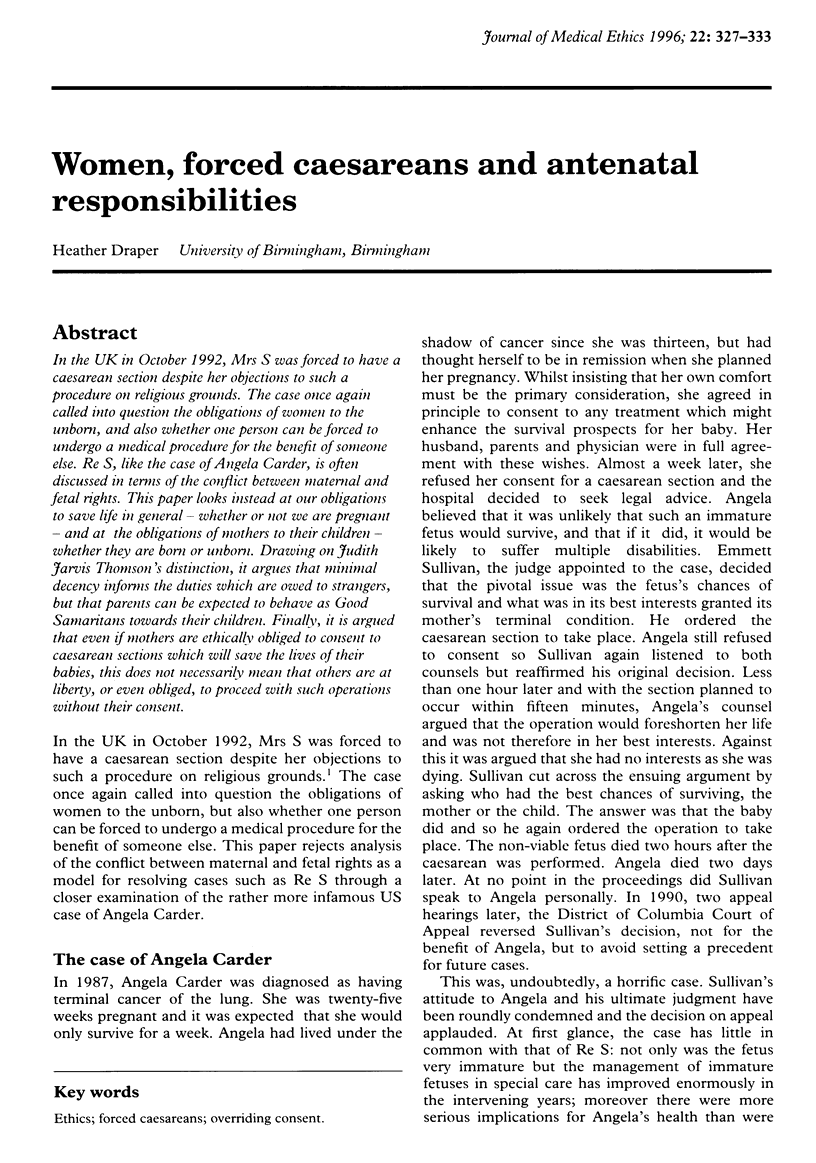
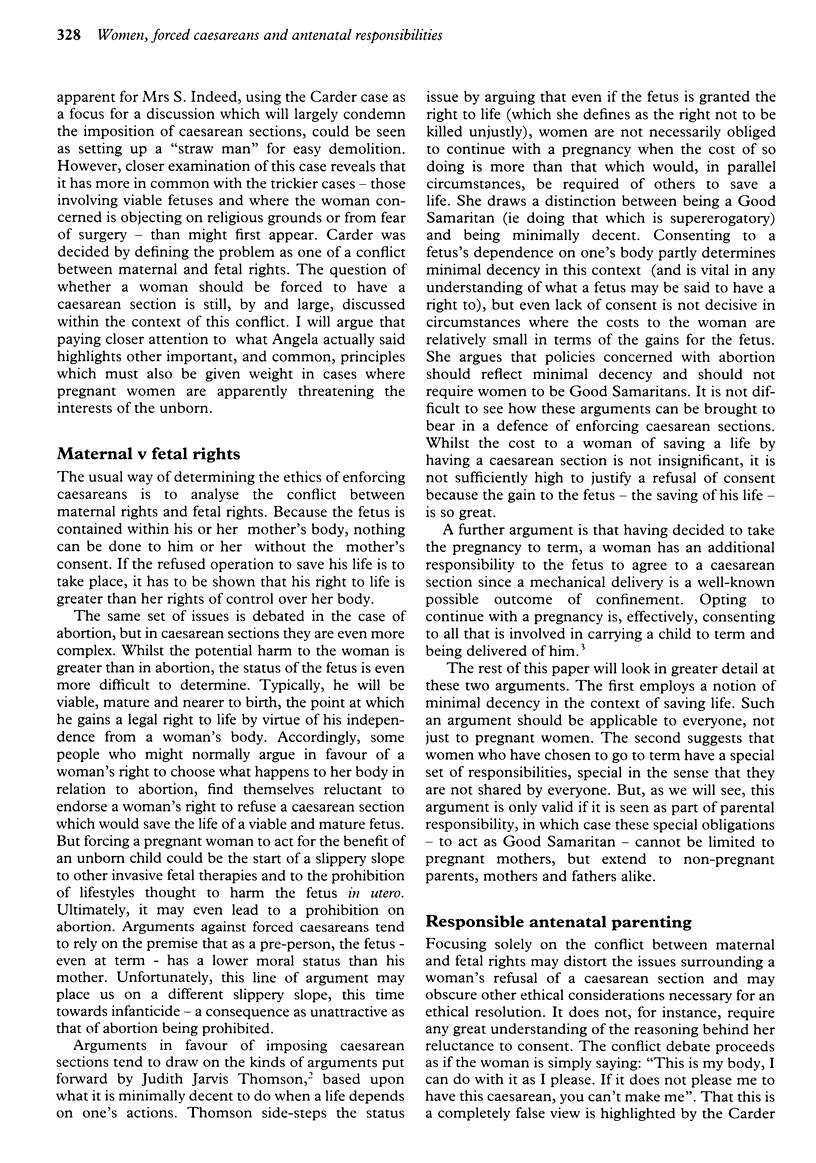
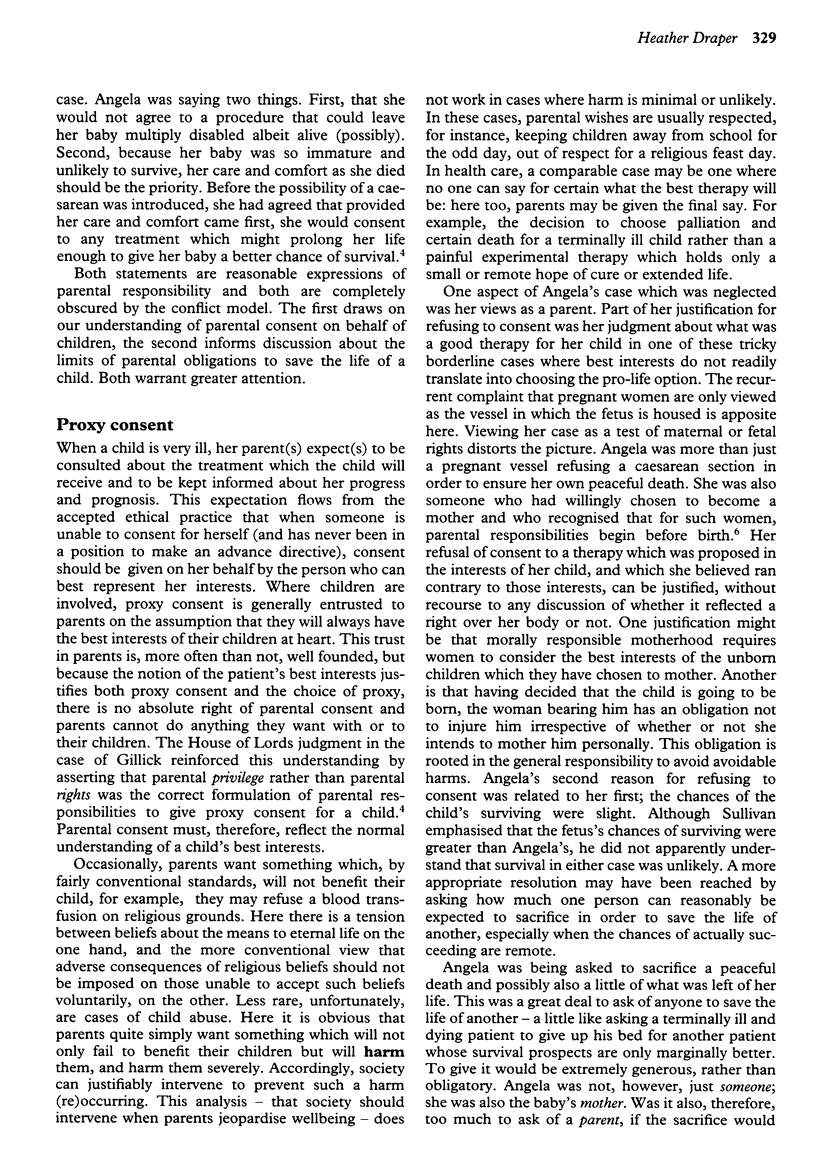
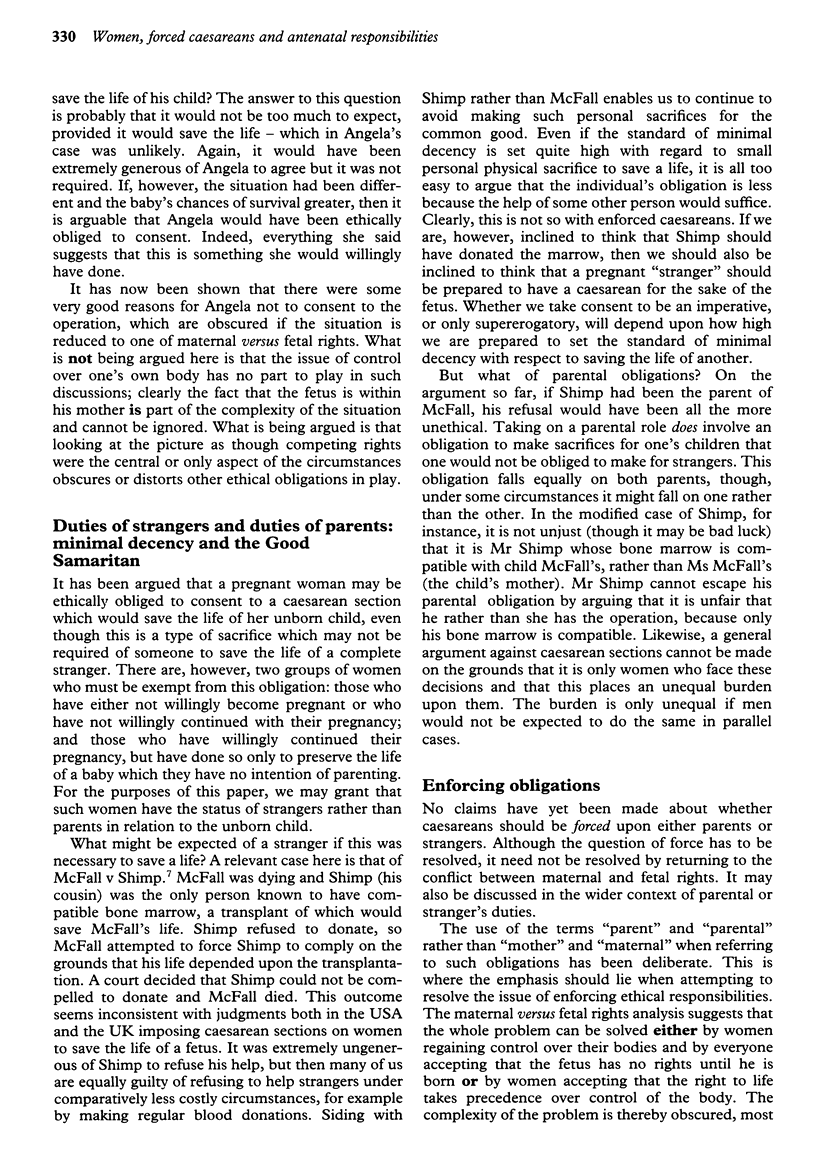
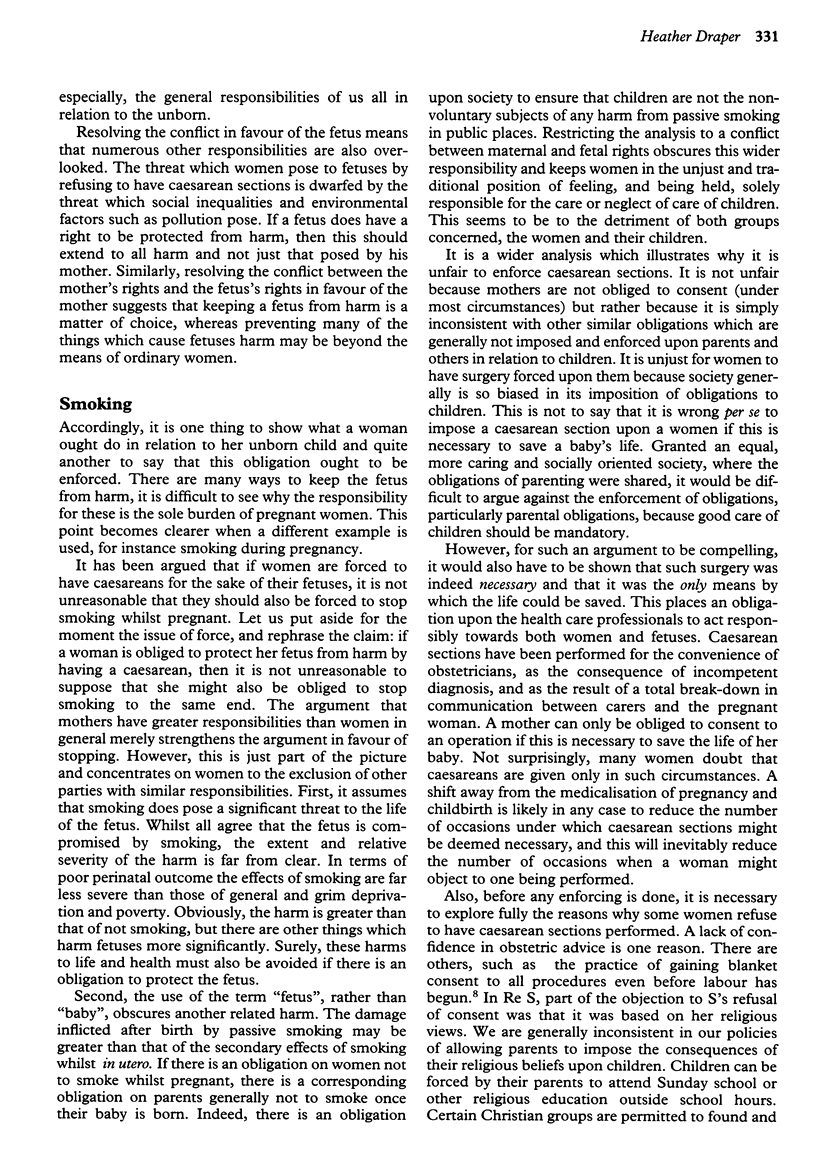
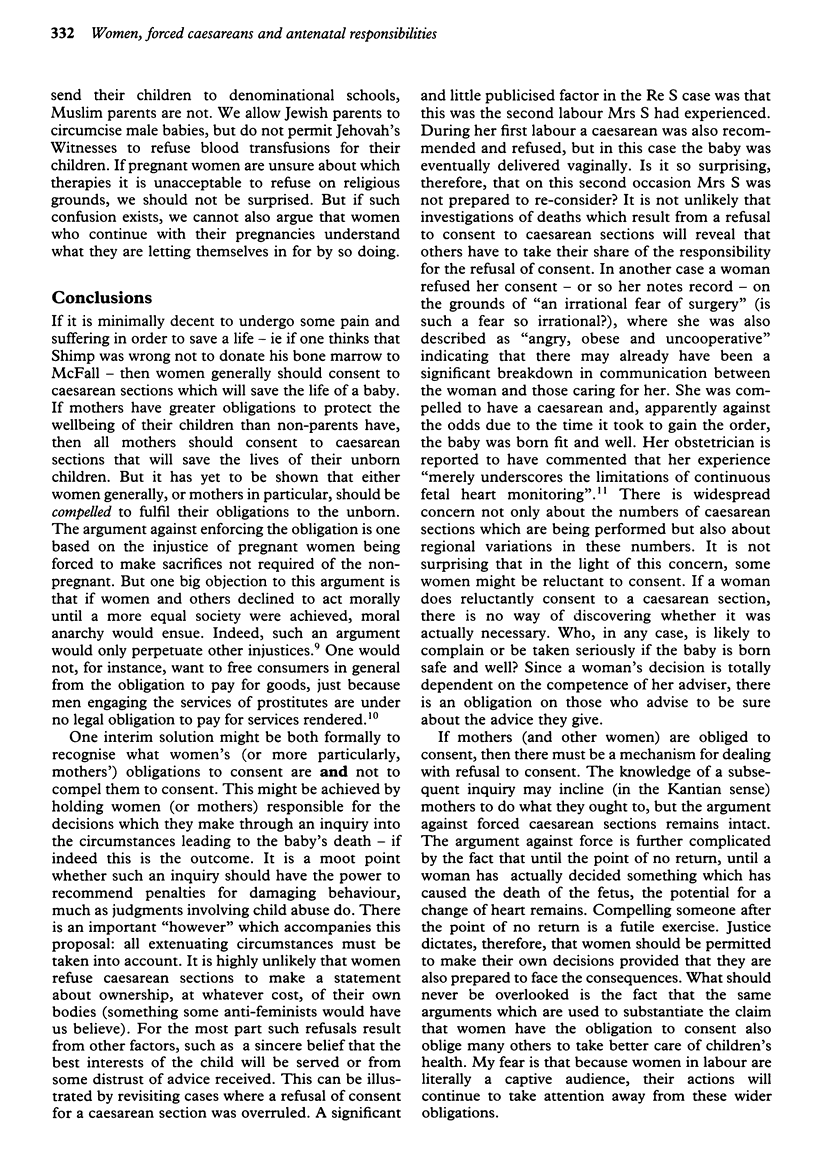
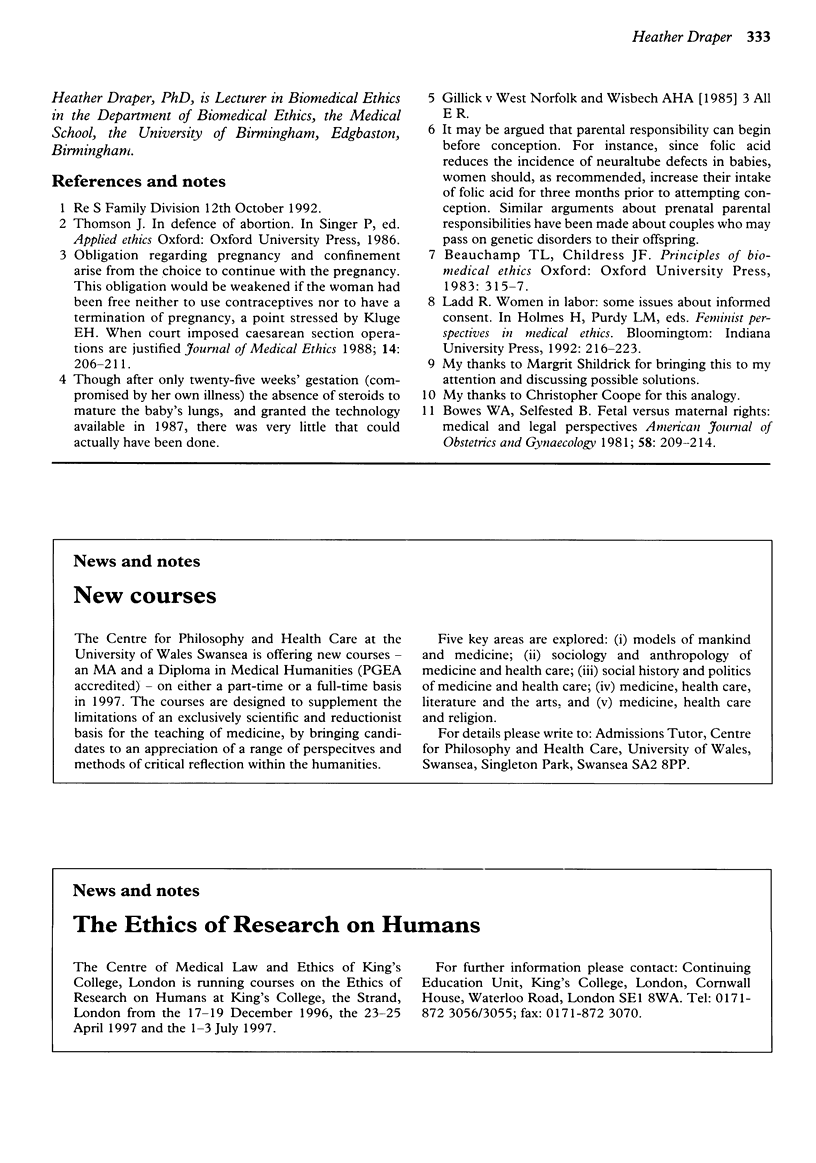
Selected References
These references are in PubMed. This may not be the complete list of references from this article.
- Bowes W. A., Jr, Selgestad B. Fetal versus maternal rights: medical and legal perspectives. Obstet Gynecol. 1981 Aug;58(2):209–214. [PubMed] [Google Scholar]
- Kluge E. H. When caesarean section operations imposed by a court are justified. J Med Ethics. 1988 Dec;14(4):206–211. doi: 10.1136/jme.14.4.206. [DOI] [PMC free article] [PubMed] [Google Scholar]


